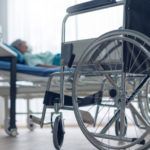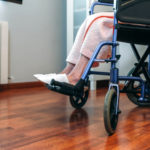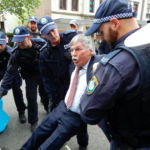Sexual Assault Is Rife Within Aged Care Facilities

The aged care sector is one of the largest service industries in the nation. And with Australia’s aging population, its significance is set to increase. However, in its current state, incidents of sexual abuse and assault are rife, and not a lot is being done about it.
The final report of the Royal Commission Into Aged Care was released this week. It details that over 2019-20, 851 alleged sexual assaults were reported. However, as resident-on-resident assaults for the most part go unreported, the real figure is likely “as high as 2,520, or almost 50 per week”.
“In some cases, family members encourage their loved ones to move into residential care because they felt that it would be safer for them”, the report notes. “But, on the contrary, people living in residential aged care likely face a much higher risk of assault than people living in the community.”
Despite such high statistics, nothing has been suggested within the report’s 148 recommendations in terms of dealing with the issue that predominantly affects older women. Indeed, handling of the issue has been left up to an enhanced reporting system that’s being rolled out in April.
And while the new reporting scheme will capture a broader range of resident perpetrated sexual abuse incidents, the government still refuses to consider rolling out a UN overseen program of independent inspections designed to prevent rights violations before they happen.
Data for the sake of it
“Residential services have to report unlawful sexual contact,” explained Opal Institute director Dr Catherine Barrett, “but not if the perpetrator has cognitive impairment and the operators have got strategies in place.”
“The thinking behind that is someone with cognitive impairment can’t be prosecuted.”
The Opal Institute is an organisation that promotes the upholding of the sexual rights of older people. And it runs the Power Project, which is a data collection and resources initiative on the prevention of the sexual assault of older women.
As Dr Barrett outlined, the data on sexual assault perpetrated against those in aged care is set to rise as the federal government implements the Serious Incident Response Scheme on 1 April.
Announced in June last year, SIRS differs from the current approach, as it will require reporting on sexual assault perpetrators with cognitive impairment.
“But it’s really important to take a step back and question what the purpose is of collecting this information,” the director emphasised, adding that under normal circumstances, organisations gather data with the aim of developing measures for improvement.
Aged care data has been collected for over a decade now. But Dr Barrett told Sydney Criminal Lawyers that it “has not been used to inform policy or shape educational resources. So, the message is that sexual assault is not really a crime, because there are all these caveats”.
No real impact
The Royal Commission heard testimony from a number of residents and family members outlining sexual assaults that have taken place in aged care settings, a number of which were perpetrated by staff members.
One woman reported that her mother had repeatedly been sexually assaulted by night staff, and she was initially too terrified to tell her daughter, as the two men involved had threatened to kill her if she said anything.
A man reported an incident where his mother had been attacked by a male resident who was simply able to enter her room and sexually assault her.
While a nurse gave evidence of an elderly man with dementia walking freely throughout a facility as he made sexual advances towards other residents.
Dr Barrett pointed out that not only did a 2019 KPMG report estimate that nationally there had been an additional unreported 1,730 sexual assaults in aged care, but when staff were asked to rate the impact of assaults in general, they said 58 percent of them were having no real impact on the victim.
“The benchmark has been so low for such a long time, we have become numb to the rights of older people, including the right to be free from sexual assault,” she stressed.
“The international research shows that, on average, an older woman dies within a year of being sexually assaulted.”
A system that prevents abuse
Australian OPCAT Network coordinator Steven Caruana notes that the commissioners indicated that currently within aged care nothing is being done to reduce abuse. And while they disagreed on much, they all acknowledged that “a rights-based approach” to curb abuse should be applied.
“Following this logic, it is easy to argue then that a rights focused, proactive and preventive oversight mechanism, such as OPCAT, could indeed help reduce the occurrence of sexual assaults in these facilities,” Caruana explained.
Under the Optional Protocol to the Convention Against Torture (OPCAT), a UN-governed network of independent inspection teams is soon to be operating throughout Australian closed environments, specifically adult and youth prisons, secure mental health centres and immigration facilities.
Where OPCAT inspections differ from those that have come before is they have a focus on preventing human rights abuses prior to their occurrence.
But as Caruana pointed out soon after the Royal Commission was first established, the federal government is not considering this approach for aged care facilities.
As a Churchill Fellow, Caruana travelled through Europe in 2017 to see the impact of OPCAT firsthand in countries where it was then operating. And he noted this week that another beneficial aspect for aged care is the OPCAT system provides protections for families and staff who speak out.
“It is disappointing that the Royal Commission did not go as far as to recommend that OPCAT be extended as a priority to aged care,” Caruana concluded.
“It is even more disappointing that despite the harm, neglect and abuse that has been uncovered by the Royal Commission, the government does not consider aged care facilities as an area where ‘challenges are at their most significant’.”







